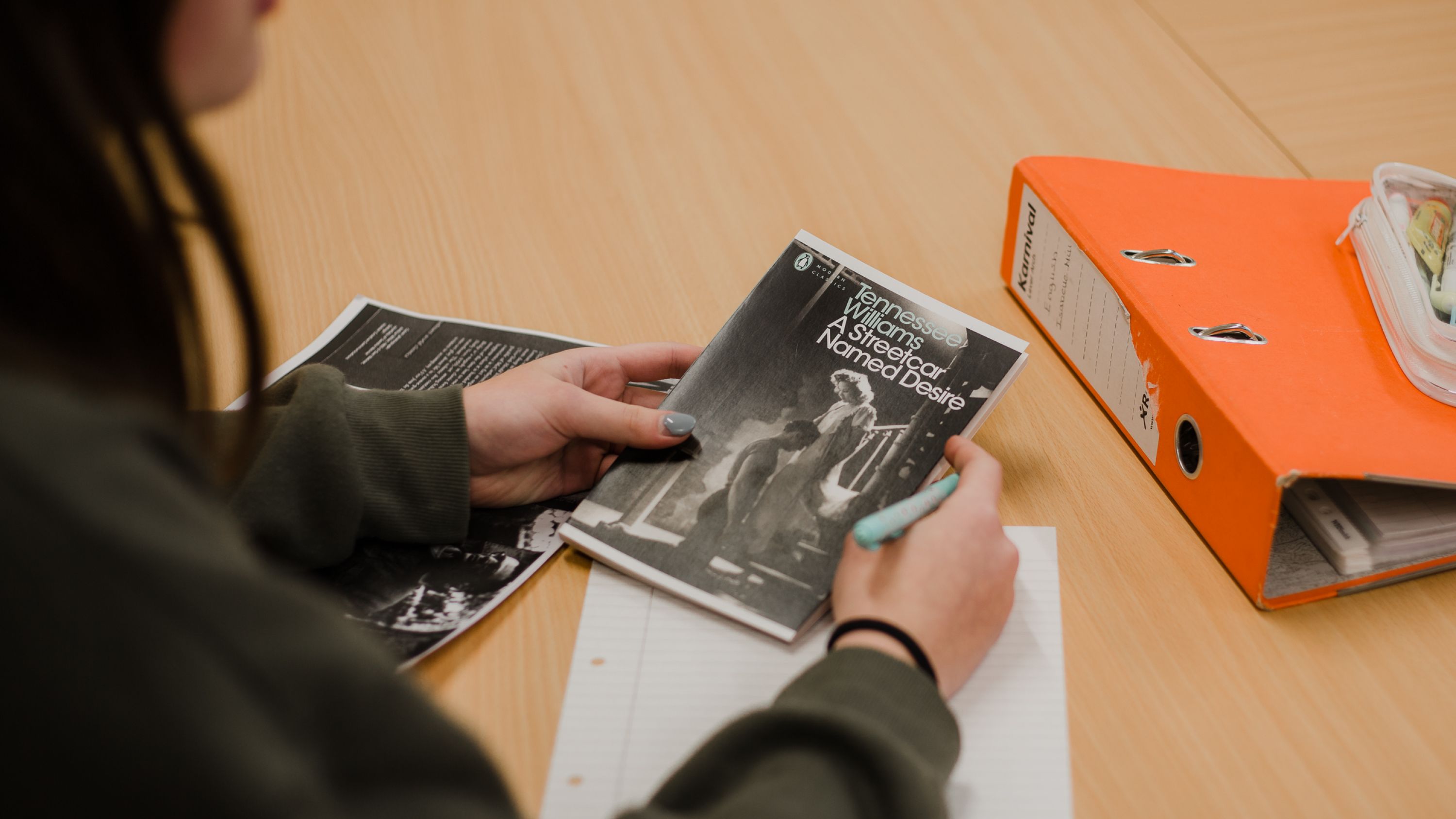Entry Requirements
Grade 6 in GCSE English Language & GCSE English Literature
Alongside the entry requirements for each course, you will also need to achieve the minimum Sixth Form entry requirements.
Assessment
2 x Externals Exams: 80% of A-Level
Coursework Tasks: 20% of A-Level
Next Steps
Students of English Literature will develop excellent communication and critical thinking skills, allowing them to pursue a range of future study and career options. We are a popular facilitating subject for many university courses in the Arts, Social Sciences and Law. In particular, this subject would be useful in careers such as journalism, copywriting, public relations, legal roles and teaching.
A-Level in English Literature
For avid readers, wordsmiths, poets and theatre lovers - English Literature is the perfect choice.
Studying literature nourishes the imagination. It has the power to transport you back in time; share the experiences of others; explore ideas, beliefs and values; take on new perspectives; challenge or discover your own and learn the literary skills to express yourself in original and creative ways through dialogue, argument, prose and poetry.
Ready to Apply?
Course Content
Plays, Prose & Poetry Covered
- The Handmaid’s Tale - Margaret Atwood
- Othello - William Shakespeare
- The Great Gatsby - F.Scott Fitzgerald
- A Streetcar Named Desire - Tennessee Williams
- An Anthology of Pre-1900 Poetry
- Feminine Gospels - Carol Ann Duffy
- A whole host of unseen poetry and prose
Year 12
‘Modern Times: Literature from 1945 to the present day’
This topic takes the end of WW2 as its historical starting point and explores both modern and contemporary literature’s engagement with some of the social, political, personal and literary issues which have helped to shape the latter half of the 20th century and the early decades of the 21st century.
Year 13
‘Love Through the Ages’
The aim of this topic area is to explore aspects of a central literary theme of ‘love’ as seen over time through different genres of texts. You will make connections across and between texts, seeking to understand the influence of context and form on the presentation of love.
Independent Critical Study: Texts Across Time
This element of the course is assessed as written coursework: students write a comparative critical study of two texts, one of which must be written pre-1900. Students select their own pairings with guidance from the English teaching team. The texts chosen must maximise opportunities for comparison and allow access to a range of critical interpretations, including over time.
